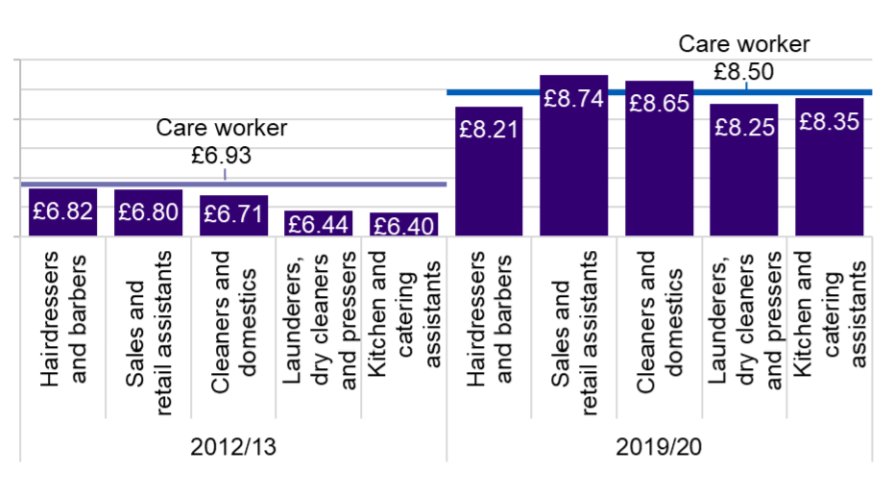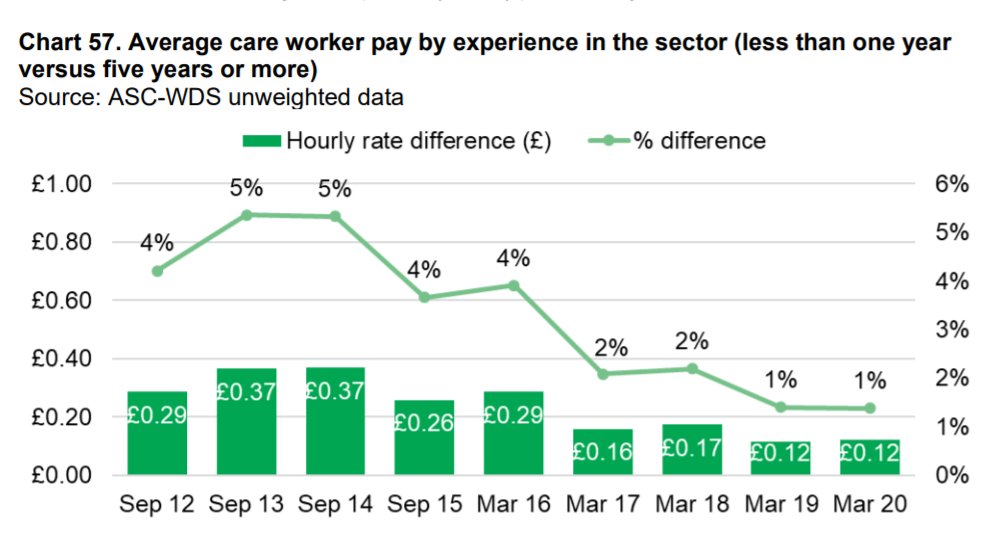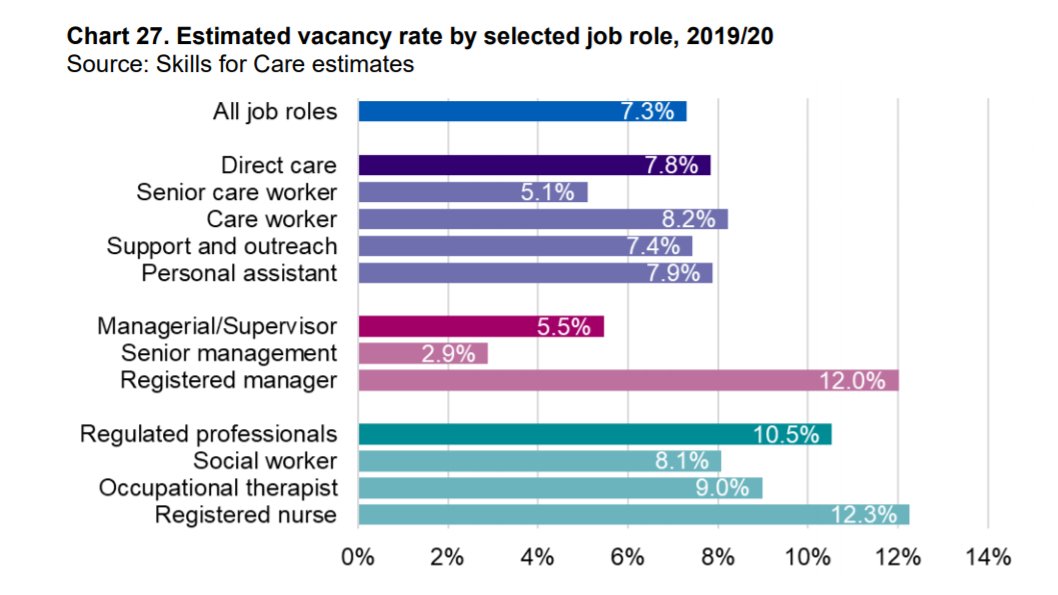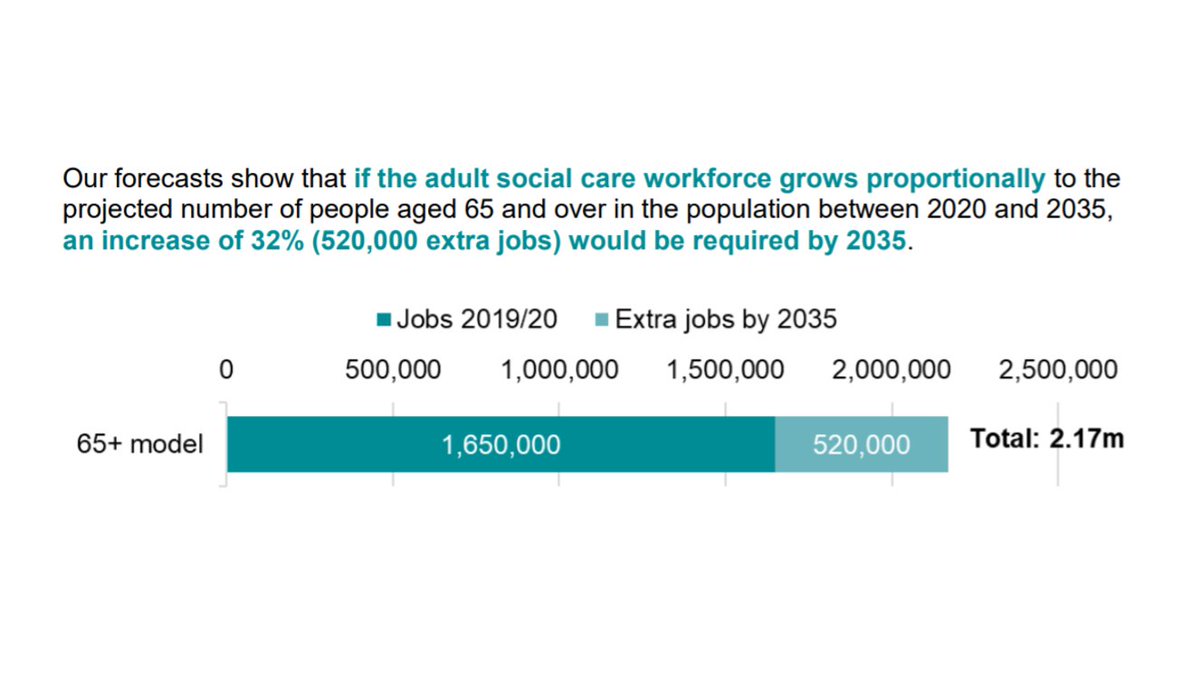Today’s @skillsforcare workforce report shows the fragility of the #socialcare sector. Here’s a quick thread of 5 things in the report that ought to worry us…. https://www.skillsforcare.org.uk/adult-social-care-workforce-data/Workforce-intelligence/publications/national-information/The-state-of-the-adult-social-care-sector-and-workforce-in-England.aspx">https://www.skillsforcare.org.uk/adult-soc...
1) Though pay is rising (the average careworker is now a whopping 26p an hour better off than last year  https://abs.twimg.com/emoji/v2/... draggable="false" alt="🎉" title="Partyknaller" aria-label="Emoji: Partyknaller">), they could still earn more as a cleaner or supermarket worker.
https://abs.twimg.com/emoji/v2/... draggable="false" alt="🎉" title="Partyknaller" aria-label="Emoji: Partyknaller">), they could still earn more as a cleaner or supermarket worker.
2) #Socialcare is valuing experience less. The average pay difference between a worker with 5 years’ experience and a new starter is now just 12p.
3) The report has some good news in that the #socialcare vacancy rate has fallen a little. But that still left 112,000 jobs open at any one time last year. The biggest problem is in #homecare
4) Though careworker vacancies have stabilised, they have increased for registered managers and nurses (there are 2,800 fewer nurses in #socialcare). Around one in 8 of these posts is vacant. Yet both of these groups are critical to care quality.
5) In the long term, we may need a lot more people in #socialcare. The report predicts demand for 520,000 more careworkers by 2035 to keep up with demand. Yet growth in jobs has been slowing in recent years.
It& #39;s not all grim. There are more, younger workers coming into #socialcare as a result of #Covid19 and there& #39;s little sign yet of a Brexit impact on migrant workers. But overall it& #39;s a worrying read. We need a long-term strategy to put it right.

 Read on Twitter
Read on Twitter ), they could still earn more as a cleaner or supermarket worker." title="1) Though pay is rising (the average careworker is now a whopping 26p an hour better off than last year https://abs.twimg.com/emoji/v2/... draggable="false" alt="🎉" title="Partyknaller" aria-label="Emoji: Partyknaller">), they could still earn more as a cleaner or supermarket worker." class="img-responsive" style="max-width:100%;"/>
), they could still earn more as a cleaner or supermarket worker." title="1) Though pay is rising (the average careworker is now a whopping 26p an hour better off than last year https://abs.twimg.com/emoji/v2/... draggable="false" alt="🎉" title="Partyknaller" aria-label="Emoji: Partyknaller">), they could still earn more as a cleaner or supermarket worker." class="img-responsive" style="max-width:100%;"/>






